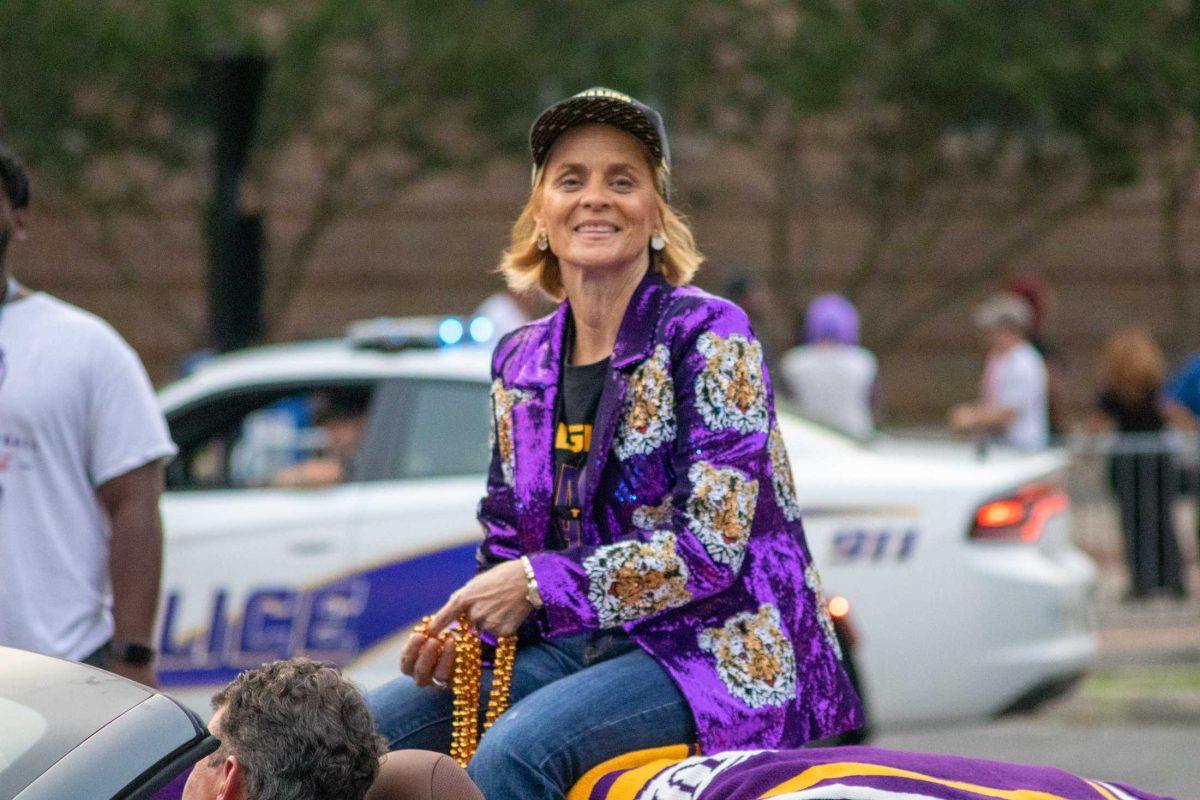Most college students take their freedom for granted. Second-year law student Natalie LaBorde and communication studies senior Sarah Kaiser spend their time fighting for those who don’t have that luxury.The two students founded the student organization Tigers Against Trafficking (TAT) after LaBorde took an overseas research trip.”I met a little girl in Cambodia named Zoe, carrying a 1-year-old child on her hip like it was her sibling,” LaBorde said. “When they found Zoe, she was pregnant. She was 11 years old. She didn’t even know what was inside of her.”Human trafficking refers to the harboring, recruitment and transportation of people for the purpose of forced labor or prostitution. The United Nations’ International Labor Organization estimates there are 12.3 million victims of trafficking at any given time. Other estimates range from 4 million to 27 million people, according to the U.S. Department of State’s 2007 Trafficking in Persons Report. The Polaris Project, a United States anti-trafficking organization, estimates 17,500 foreign individuals are trafficked into the United States every year.”Eighty percent of those are women and children in the form of sex slavery,” LaBorde said. “The average age of a victim is 14 years old. Some are forced to service up to 20 men a day. You see a lot of specific instances of this in Asia in the form of child brothels, sex tourism and things like that … In America, it’s more domestic — it’s more sexual exploitation, forced prostitution by a pimp or older brother or family member.”Human trafficking doesn’t receive much recognition in America, but it takes place closer to home than many realize.Trafficking often flies under the radar partially because victims are hard to spot, especially in the United States, LaBorde said.Many of the estimated 1,000 homeless children on Baton Rouge’s streets may perform “commercial sex acts” in exchange for shelter or food for the night, according to Shared Hope International’s 2008 “Domestic Minor Sex Trafficking Report: Baton Rouge/New Orleans.” Stripping, exotic dancing and prostitution may all be considered forms of sexual exploitation.”[Ages] 13, 14, 15 or 16 — they were sexually exploited and forced to prostitute, so by the time we encounter them years later, it looks like a chosen lifestyle,” LaBorde said.LaBorde and Kaiser decided they needed to be part of the change they wanted to see in the world and began TAT with a 5k race in March to raise awareness for the cause. LaBorde said there were 373 participants, and an estimated 80 percent were students. The race raised more than $10,000, all of which went to fight trafficking.The group received official University student organization status in September, but its membership numbers are still tough to specify.”We had about 23 show up to our first meeting,” LaBorde said. “Our Facebook group, Tigers Against Trafficking, has about 1,200 members, but all of those are obviously not in Baton Rouge. And we have about 400 on the e-mail list.”LaBorde and Kaiser also helped organize a 5k race, “Lions Against Trafficking,” at Southeastern Louisiana University in Hammond on Sept. 26 along with SELU’s chapter of Amnesty International.”[Trafficking] really is an issue that affects the margins of society and the invisible members of society, so people don’t know that it does happen in New Orleans or that it could be happening in Hammond or in Baton Rouge,” said Jason Granger, the student group coordinator for SELU’s student chapter of Amnesty International. LaBorde also helped Julie Emerson, a friend from Lafayette, begin a Cajuns Against Trafficking club at the University of Louisiana-Lafayette.The Cajuns Against Trafficking will host a 5k on Nov. 20 in Lafayette, Emerson said.Emerson and LaBorde both talked to students at other schools, including the universities of Florida and Kentucky and Oklahoma State University, about starting similar organizations.”Another long-term goal is to really equip other students to address trafficking via their campuses,” LaBorde said.TAT raises money for national and international anti-trafficking organizations. The group also tries to spread phone numbers on the streets, in strip clubs and at truck stops to give potential victims a contact for potential assistance.”We spend countless hours, but we love what we’re doing,” Kaiser said. “My phone battery never makes it to 2 p.m. because it’s always vibrating, but I wouldn’t take it back. It’s so worth it.”The organization’s next event is a “Be Their Freedom” concert and information session Oct. 29 at The Varsity Theatre in Baton Rouge. Four bands will play at the concert that will be sponsored by several local and national companies. Tickets are $10 ahead of time and will be $12 at the door of the event. Proceeds will go toward fighting human trafficking.- – – -Contact Jerit Roser at jroser@lsureveille.com
Students fight to bring awareness to trafficking
October 19, 2009





